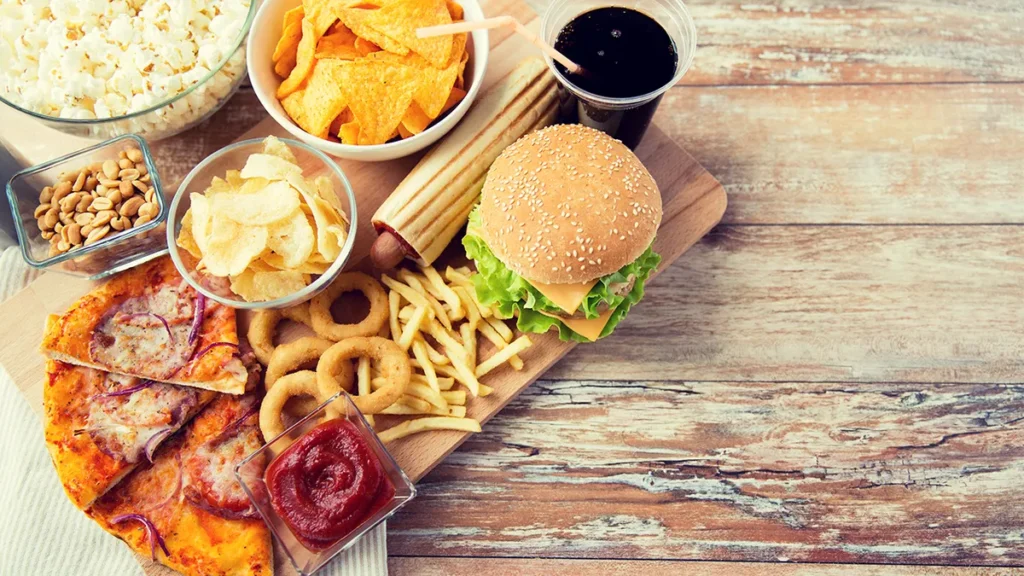10 Foods to Avoid for Hair Loss

Hair loss is a common concern affecting millions of people worldwide. While genetics, hormonal imbalances, and medical conditions often play significant roles in hair health, diet can also be a crucial factor. Certain foods can exacerbate hair loss or hinder hair growth, making it essential to understand which dietary choices might be contributing to the problem. In this blog post, we will explore the foods to avoid to maintain healthy hair and potentially reduce hair loss.
1. Sugary Foods and Drinks
Sugary foods and beverages, such as sodas, candies, pastries, and even some cereals, can negatively impact hair health. High sugar intake can lead to insulin resistance, which in turn can cause an increase in androgen levels. Androgens are male hormones that, when elevated, can shrink hair follicles and lead to hair loss. Moreover, excessive sugar consumption can cause inflammation and oxidative stress, both of which are detrimental to hair follicles.
2. Refined Carbohydrates
Refined carbohydrates, including white bread, pasta, and rice, can have a similar effect as sugary foods. These foods have a high glycemic index, causing rapid spikes in blood sugar levels. This can lead to increased production of androgens and subsequent hair thinning or loss. Opting for whole grains instead of refined grains can help maintain steady blood sugar levels and support healthier hair.
3. Trans Fats
Trans fats, found in many processed and fried foods like fast food, margarine, and baked goods, can contribute to inflammation and poor circulation. Poor blood circulation can affect the scalp and hair follicles, potentially leading to hair loss. Additionally, trans fats can increase levels of bad cholesterol (LDL) and decrease good cholesterol (HDL), further impacting overall health and hair growth.
4. High-Mercury Fish
Certain fish, such as swordfish, shark, king mackerel, and some types of tuna, contain high levels of mercury. Mercury is a heavy metal that can be toxic to the body, including hair follicles. High mercury levels can disrupt the balance of essential minerals, particularly zinc, which is crucial for hair health. Opt for low-mercury fish like salmon, sardines, and trout to avoid this issue.
5. Alcohol
Excessive alcohol consumption can lead to dehydration and nutrient deficiencies, both of which are harmful to hair health. Alcohol dehydrates the body, including the scalp, leading to dry and brittle hair. It also interferes with the absorption of essential nutrients like zinc and iron, which are vital for healthy hair growth. Moderating alcohol intake or avoiding it altogether can help maintain better hair health.
6. High-Sodium Foods
Foods high in sodium, such as processed meats, canned soups, and salty snacks, can contribute to hair loss. High sodium intake can lead to hypertension (high blood pressure), which can reduce blood flow to the scalp and hair follicles, impairing hair growth. Reducing salt consumption and choosing fresh, unprocessed foods can benefit both overall health and hair growth.
7. Artificial Sweeteners
Artificial sweeteners, commonly found in diet sodas and sugar-free products, can negatively impact hair health. Aspartame, a widely used artificial sweetener, has been linked to hair thinning and loss in some individuals. While more research is needed to fully understand the relationship, avoiding artificial sweeteners and opting for natural sweeteners like honey or stevia may be a safer choice for those concerned about hair loss.
8. Caffeine
While moderate caffeine consumption can have some health benefits, excessive intake can lead to dehydration and nutrient depletion. Caffeine is a diuretic, meaning it increases urine production and can dehydrate the body. Dehydration affects the scalp and hair, potentially leading to dryness and brittleness. Limiting caffeine intake and ensuring adequate hydration can help support healthier hair.
9. Dairy Products
For some individuals, dairy products can contribute to hair loss. Dairy can trigger inflammation and increase oil production on the scalp, leading to clogged hair follicles and hair thinning. Additionally, some people may have sensitivities or intolerances to dairy, which can exacerbate these issues. Opting for dairy alternatives like almond milk, coconut milk, or lactose-free options may help reduce hair loss for those affected.
10. Certain Nuts and Seeds
While nuts and seeds are generally healthy, some, like peanuts and sunflower seeds, can be problematic for those with hair loss concerns. These foods can contain high levels of omega-6 fatty acids, which can cause inflammation if not balanced with omega-3 fatty acids. Ensuring a proper balance between omega-6 and omega-3 fatty acids by consuming foods like flaxseeds, chia seeds, and walnuts can help maintain healthy hair.
Conclusion
Maintaining healthy hair involves a holistic approach that includes a balanced diet, proper hair care, and addressing any underlying health issues. Avoiding the foods mentioned above can help reduce the risk of hair loss and promote healthier hair growth. It’s also important to consult with a healthcare professional or a nutritionist to create a personalized diet plan that supports overall health and hair wellness. By making mindful dietary choices, you can take a proactive step towards preserving your hair and boosting your confidence.
More than that, you can try our hair oil KESHMANJARI product to regrow your hair.
